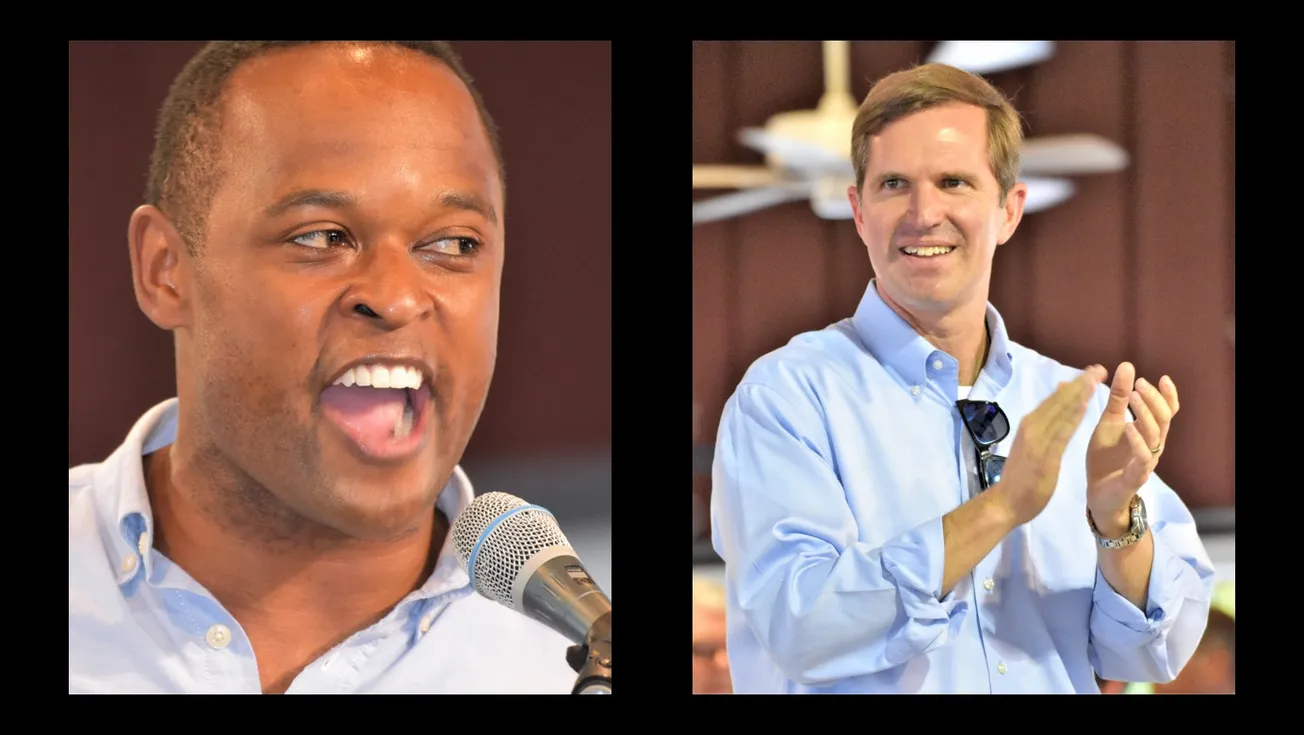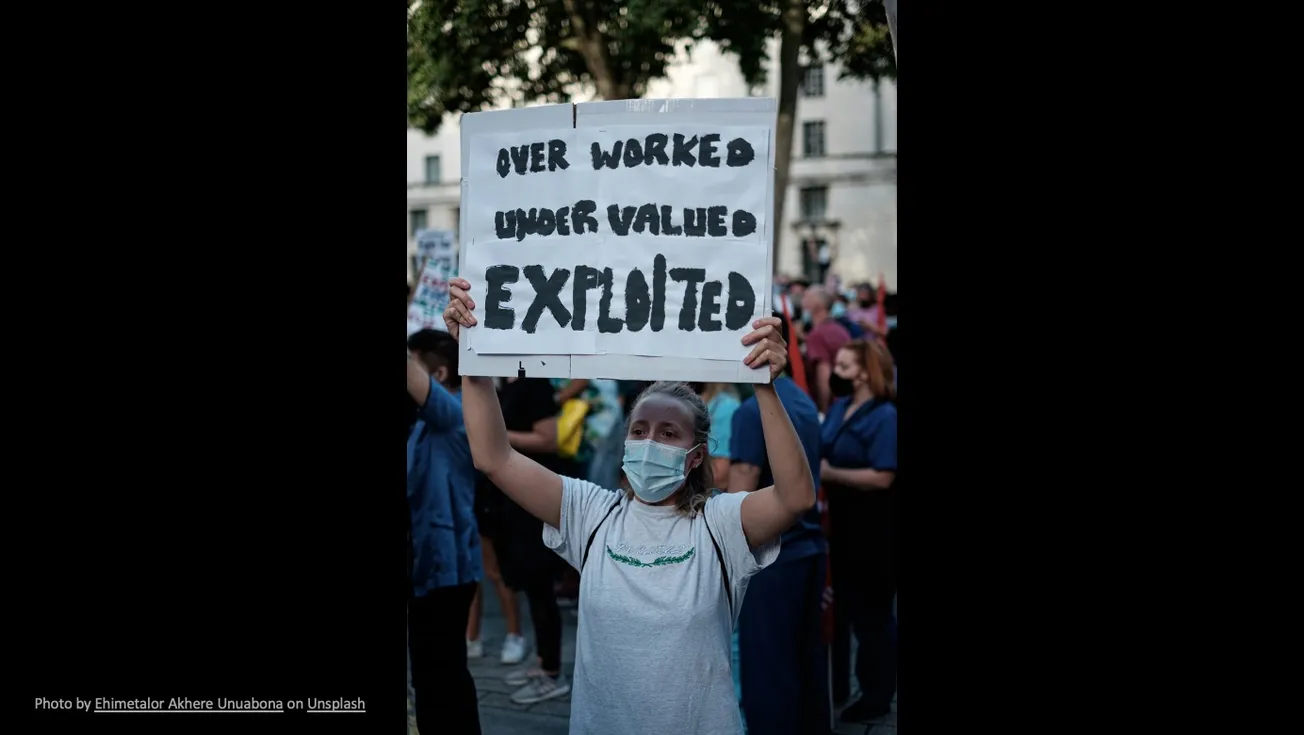The first face-off of the candidates for governor, at last Saturday’s Fancy Farm Picnic, brought the race into clearer focus.
Republican Attorney General Daniel Cameron is betting that culture will trump politics, as it often has in Kentucky, and that voters will change their minds about Democratic Gov. Andy Beshear, who is running on his record as one of the nation’s most popular governors.
Both candidates implicitly claim the moral high ground, differently defined.
In his five-minute speech, Cameron said “values” four times, and made eight references to transgender people. That reflected Republicans’ legislative political strategy, sending Beshear veto-bait bills targeting transgenders; and the multi-million-dollar ad campaigns by the two outside political committees supporting Cameron.
Those ads are misleading, as the Courier Journal’s Joe Sonka explained last month, but have had some effect. Two Public Opinion Strategies polls showed Beshear’s lead narrowing to within the last poll’s error margin; and Beshear has started his first attack ad, saying the ads aren’t true, citing Sonka’s article and noting Cameron’s support for public funding of private schools.
The surprising aspect of the ad is that the attack is delivered by Beshear himself, speaking directly to camera and calling Cameron by name. Negative advertising is inherently risky, but Beshear and his advisers apparently believe he has such a reservoir of support and trust that he can deflect the attack merely by denying it himself – and noting somewhat indignantly, “I’m a deacon in my church.” (That’s the Disciples of Christ, generally known as the Christian Church.)
That’s the sort of approach that is available to a popular incumbent whose high job approval seems baked in. It held around 60 percent for more than a year, well after the end of the Covid-19 pandemic – his response to which appears largely responsible for his high ratings. Beshear’s daily news conferences in the first few months of the pandemic took him into Kentuckians’ homes in a way no governor ever had before. They’re on a first-name basis; his signs emphasize “Andy.”
Apparently to undercut that, Cameron said at the picnic that there is “TV Andy” and “the real Andy,” who “vetoes tax cuts [and] protects transgender surgeries for kids.” (Not really; surgery was in the latest anti-transgender bill Beshear vetoed, but he says such surgeries didn’t happen in Kentucky anyway, and he opposes them. Tuesday, it was revealed that the University of Kentucky said it “has performed a small number of non-genital gender reassignment surgeries on minors,” Kentucky Today reported.)
Hoping some voters have buyer’s remorse about Beshear’s handling of the pandemic, Cameron and other Republicans label him “the shutdown governor” and note that he sent state troopers to take plate numbers of, and put warning notices on, cars outside the very few churches that held in-person services in April 2020.
Beshear has generally avoided discussing his pandemic work in the last year, but now he assumes the moral high ground, telling audiences that he thought his 2019 race was “about right versus wrong,” but turned out to be “about life versus death.” He told a dinner crowd, “Thank you for helping us win that election and saving thousands of lives.”
He also assumed the moral high ground at the picnic, saying “This race is the difference between vision and DI-vision.” At the dinner, he used a similar line and added, “On that other side, you see a fostering of anger, even see them encouraging people to violate that Golden Rule, encouraging one Kentuckian to hate each other.” To both audiences, he said, “I’m ready to prove that’s a losing strategy in the commonwealth of Kentucky.”
But even as he claimed the moral high ground, Beshear gave Cameron Saturday’s toughest shot after he followed him to the Fancy Farm lectern: “It’s not true. It’s all lies. But if you’re willing to lie about a grand jury, he’s willing to lie to you.”
The pronouns didn’t match, but here’s what he meant: After the grand jury in the Breonna Taylor case did not indict either officer who burst in on the Louisville woman and her boyfriend, killing her, an anonymous juror asked the judge to let him or her discuss the proceedings, disputing Cameron’s assertion that “the grand jury agreed” that the officers were “justified in the return of deadly fire after being fired upon.”
Beshear was returning fire of another kind; Cameron said “TV Andy lies about his record on jobs, crime and teachers. TV Andy wants you to believe he’s never heard of Joe Biden.”
And that’s the biggest X factor in the race: national politics as defined by Donald Trump, who has made Kentucky a very red state, the major exceptions being Beshear and his father Steve, a two-term governor. Trump has endorsed Cameron, who won’t answer questions about Trump’s latest indictment. Can the state’s chief law-enforcement officer really hold the moral high ground while he is embraced by Trump? Or does Trump still trump when voters vote?
--30--
|








